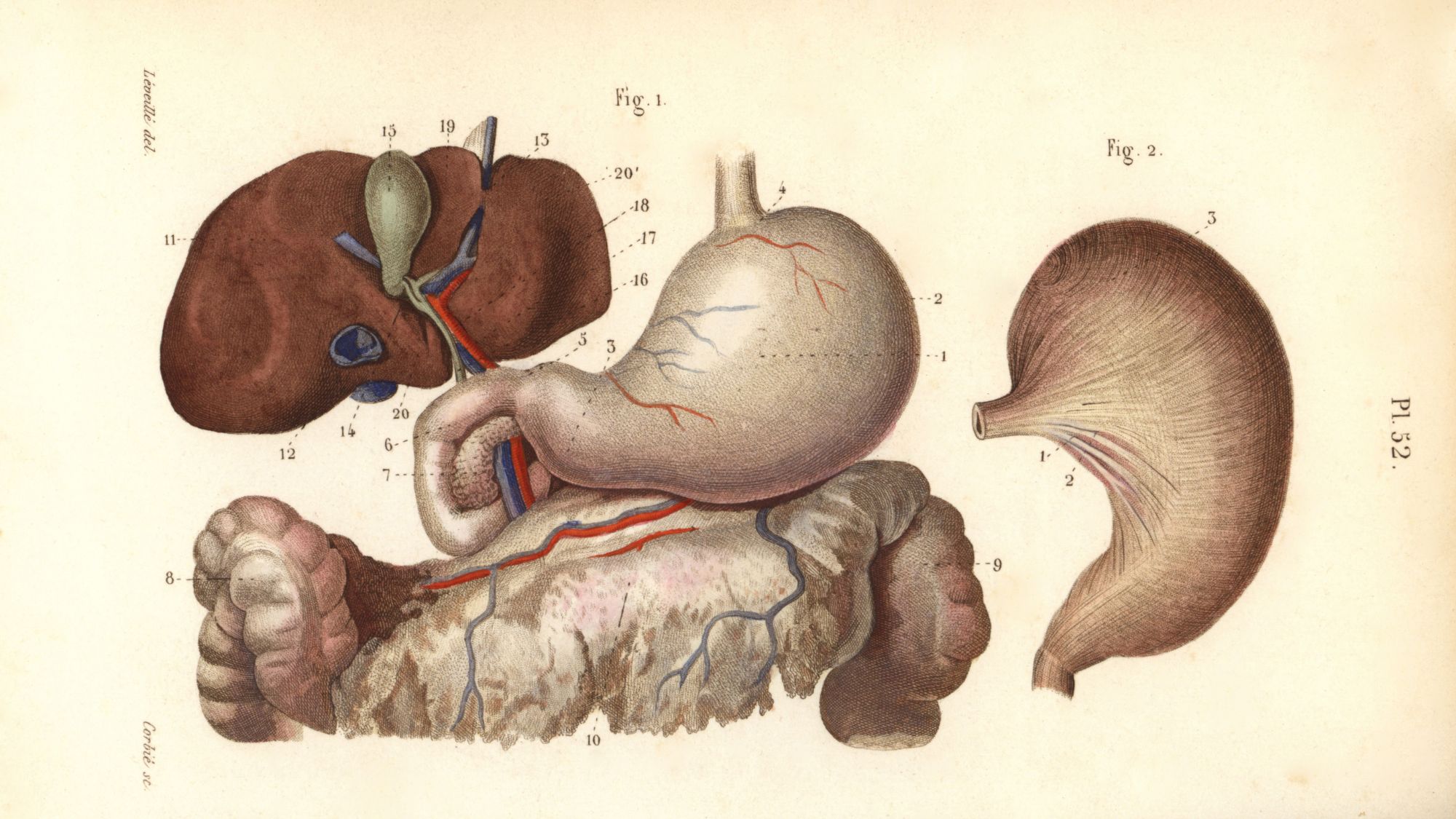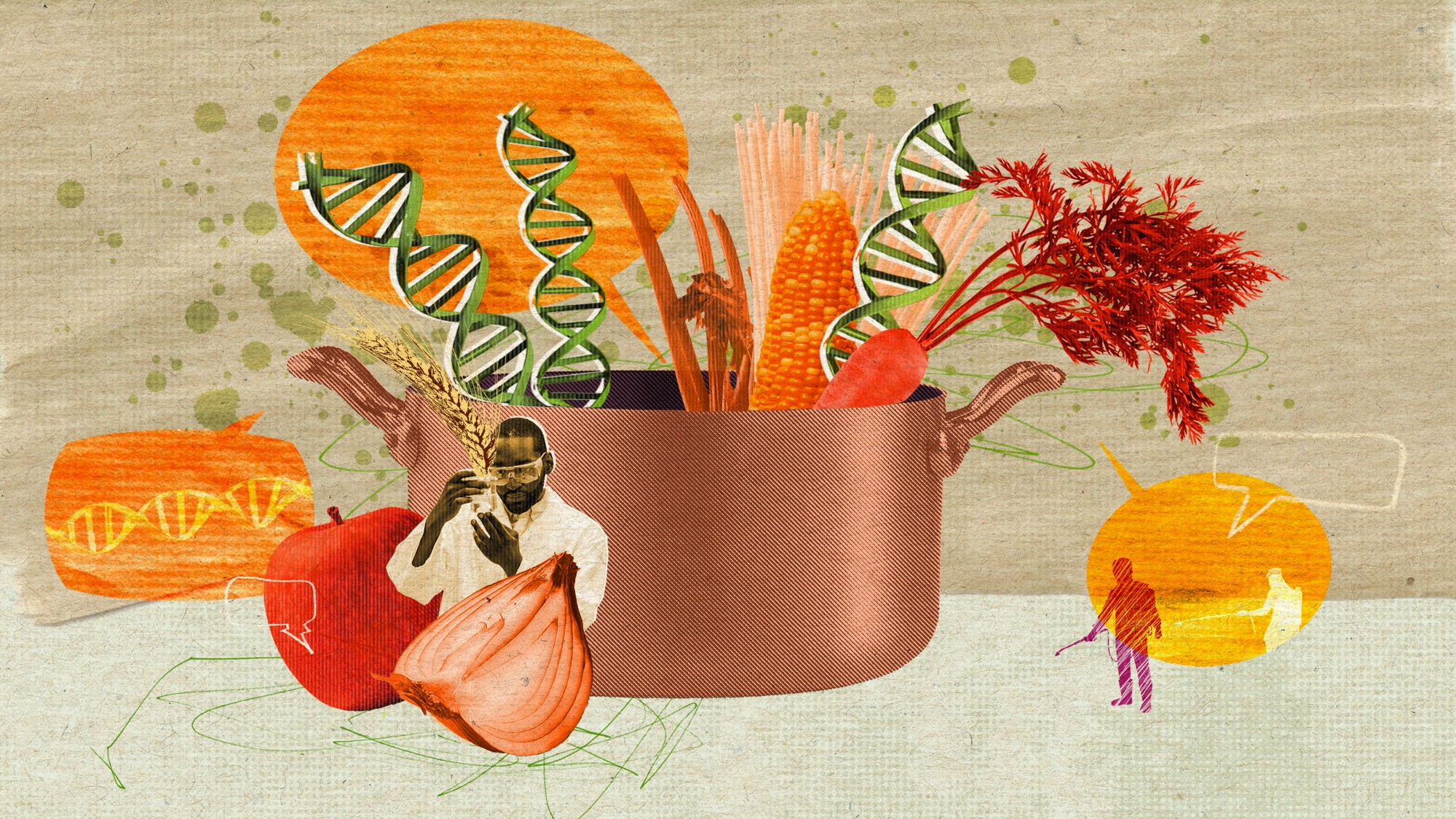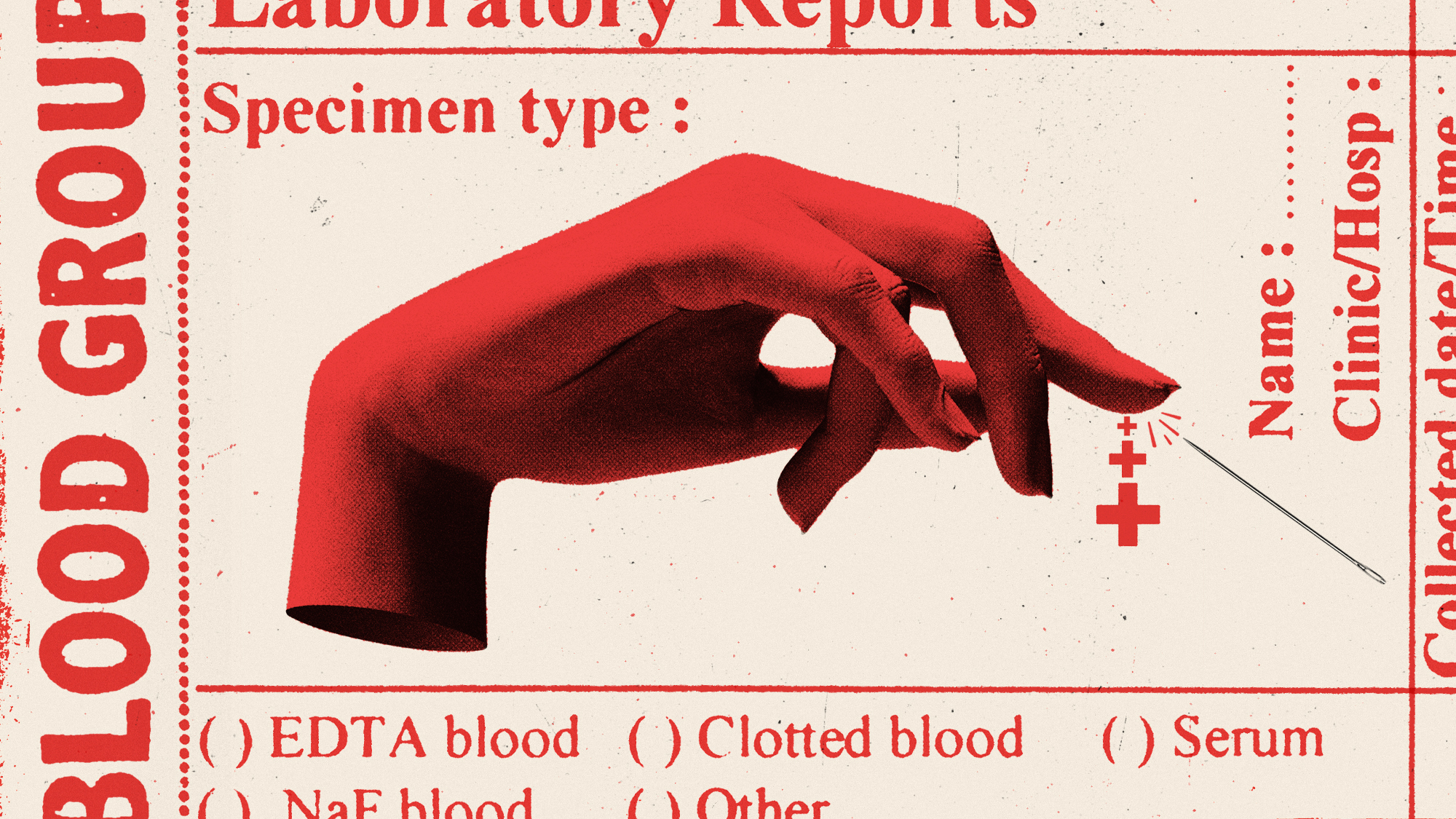Zoe: the personalised nutrition app giving doctors food for thought
Medical professionals say popular dietary monitors may lead to unnecessary health concerns

A free daily email with the biggest news stories of the day – and the best features from TheWeek.com
You are now subscribed
Your newsletter sign-up was successful
Experts are questioning whether Zoe, the personalised nutrition programme that has enjoyed a period of explosive growth, can back up its beneficial health claims.
Some British doctors have even suggested that Zoe – which promises to help users "reach a healthy weight", "feel less bloated" and "avoid chronic health issues" – could in fact lead to unnecessary health worries or even disordered eating.
The background
The Zoe programme, co-founded by Tim Spector, a genetic epidemiologist at King's College London, invites users to test, score and monitor how they respond to different foods.
The Week
Escape your echo chamber. Get the facts behind the news, plus analysis from multiple perspectives.

Sign up for The Week's Free Newsletters
From our morning news briefing to a weekly Good News Newsletter, get the best of The Week delivered directly to your inbox.
From our morning news briefing to a weekly Good News Newsletter, get the best of The Week delivered directly to your inbox.
A Zoe starter pack includes a faecal sampling kit, a finger-prick blood test and a continuous glucose monitor (CGM). With these at-home tests Zoe "can tell you how your body handles fats, sugars (carbohydrates break down into glucose) and analyse the precise make-up of your gut microbiome", said The Times's Giulia Crouch, who tested the programme.
This data, along with questionnaires about your diet and lifestyle, is then processed by AI to give you a "score out of 100 (100 being the best) for your fat control, glucose control and the health of your gut microbiome", Crouch explained.
The latest
The app, which is endorsed by the likes of Davina McCall and Carrie Johnson, has been immensely popular. More than 100,000 subscribers have joined, each paying £299.99 for the test and another £300 for a 12-month plan. And there are 300,000 people on the waiting list.
McCall has claimed that with the help of the app she is now "living her best life", telling prospective consumers, and her 1.7 million Instagram followers, that the knowledge provided by the technology is the "greatest gift ever".
A free daily email with the biggest news stories of the day – and the best features from TheWeek.com
But, said Deborah Cohen and Margaret McCartney on UnHerd, while Zoe "boasts all the hallmarks of a scientific endeavour", its "scientific foundations aren't as strong as they would have you think".
Cohen and McCartney asked "the key question: is there evidence that the individualised advice generated by the ZOE tests, which is the key market differentiator, does what it claims?
"The answer: we don't know." No trials have yet been published to show whether Zoe's advice "can result in better health outcomes compared with standard diet and lifestyle advice".
And despite its claims – and those of similar programmes – some doctors remain "ambivalent" to the potential benefits, said Wired. They have reported that some perfectly healthy patients have come to see them due to concerns over the readings they have been given in their Zoe app.
The reaction
Shivani Misra, a consultant doctor specialising in diabetes in London, told Wired she has seen an increase in the number of patients at her non-NHS practice concerned that they may be at risk of developing diabetes. They have "either purchased a CGM themselves or through the Zoe program" and are reporting either regularly high blood sugar levels or sharp rises and falls.
CGMs are "set up to derive those kinds of behaviours in exactly the people that would be susceptible to it, in my opinion," Misra told the magazine. "I personally think there is some corporate responsibility to make sure that there is adequate safety in place for people."
Zoe is "part of a study into what healthy postprandial blood glucose levels actually are", said Isabel Hardman in The Spectator. And in it "lies the flaw in all the popular obsession with blood glucose spikes: no one yet knows what 'healthy' looks like for non-diabetics".
Monitoring your own blood sugar or metabolism "might be interesting", but "it's not necessarily important or useful", Hardman said.
The effects
Nicola Guess, a dietician and researcher at the University of Oxford, told Wired that the main problem with CGMs is that they are changing people's relationships with what they eat. "It's just making them quite weird about food, and it takes a lot of the enjoyment out of food for no reason whatsoever," said Guess.
Not so, said Tom Parker Bowles, who tested the Zoe programme for the Mail on Sunday's You magazine. The Zoe diet is "plain common sense", which encourages participants to "eat more legumes, avoid ultra-processed foods, and eat more fermented stuff: sauerkraut, kimchi and yogurt". All of this is just "sensible, rational and pragmatic" advice, which "has not only made me look more closely at what I stuff in my gob", Parker Bowles said.
Yet advice like this doesn't need to be so convoluted, said Hardman in The Spectator. This kind of technology is popular because it "helps people feel more in control of their lives and their health", but it also "overcomplicates what can be perfectly simple".
"You don't need to shell out hundreds of pounds to know that eating more fruit and vegetables will improve your health," Hardman concluded. "And you definitely don't need a flashy accessory to tell you that your body is, in fact, boringly healthy."
Arion McNicoll is a freelance writer at The Week Digital and was previously the UK website’s editor. He has also held senior editorial roles at CNN, The Times and The Sunday Times. Along with his writing work, he co-hosts “Today in History with The Retrospectors”, Rethink Audio’s flagship daily podcast, and is a regular panellist (and occasional stand-in host) on “The Week Unwrapped”. He is also a judge for The Publisher Podcast Awards.
-
 Switzerland could vote to cap its population
Switzerland could vote to cap its populationUnder the Radar Swiss People’s Party proposes referendum on radical anti-immigration measure to limit residents to 10 million
-
 Political cartoons for February 15
Political cartoons for February 15Cartoons Sunday's political cartoons include political ventriloquism, Europe in the middle, and more
-
 The broken water companies failing England and Wales
The broken water companies failing England and WalesExplainer With rising bills, deteriorating river health and a lack of investment, regulators face an uphill battle to stabilise the industry
-
 A rat infestation is spelling trouble for the almond industry
A rat infestation is spelling trouble for the almond industryThe Explainer The infestation has affected at least 100,000 acres in California
-
 A potentially mutating bat virus has some scientists worried about the next pandemic
A potentially mutating bat virus has some scientists worried about the next pandemicUnder the Radar One subgroup of bat merbecovirus has scientists concerned
-
 Life after space: how will Nasa's stranded astronauts cope?
Life after space: how will Nasa's stranded astronauts cope?In the Spotlight Sunita 'Suni' Williams and Barry 'Butch' Wilmore are headed back to Earth after nine months on the ISS – but their greatest challenge may still lie ahead
-
 Scientists report optimal method to boil an egg
Scientists report optimal method to boil an eggSpeed Read It takes two temperatures of water to achieve and no fancy gadgets
-
 Humans are near peak life expectancy, study finds
Humans are near peak life expectancy, study findsSpeed Read Unless there is a transformative breakthrough in medical science, people on average will reach the age of 87
-
 The pros and cons of GMOs
The pros and cons of GMOsPros and Cons The modified crops are causing controversy
-
 Finger-prickin' good: Are simpler blood tests seeing new life years after Theranos' demise?
Finger-prickin' good: Are simpler blood tests seeing new life years after Theranos' demise?Today's Big Question One Texas company is working to bring these tests back into the mainstream
-
 The fight to save the world's most famous cheeses
The fight to save the world's most famous cheesesUnder the Radar Reliance on exhausted fungal strains threatens the future of a host of blue cheeses